Animals Abused for Tourists' Cheap Photos and Entertainment
Update (April 3, 2024): Samutprakan Crocodile Farm and Zoo is back in the business of exploiting animals, forcing crocodiles and others to perform pointless stunts for human entertainment.
Update (January 28, 2021): Samutprakan Crocodile Farm and Zoo has gone bankrupt but is still operating. Please take action below.
Update (August 2019): Following a global outcry, the elephant Gluay Hom was purchased from Samutprakan Crocodile Farm and Zoo by foreign donors and transferred to an elephant sanctuary in Northern Thailand. While we’re pleased that he’s now in a better place, rescuing animals from zoos by buying them is generally not a viable solution to ending animal suffering in the tourism trade. There’s no guarantee that the zoo won’t simply acquire a new animal to take the place of the one who was sold. Furthermore, such purchases don’t help all the other animals who continue to languish at the facility. Buying animals from zoos pays into an industry that sentences wild animals to a miserable life of violence and deprivation.
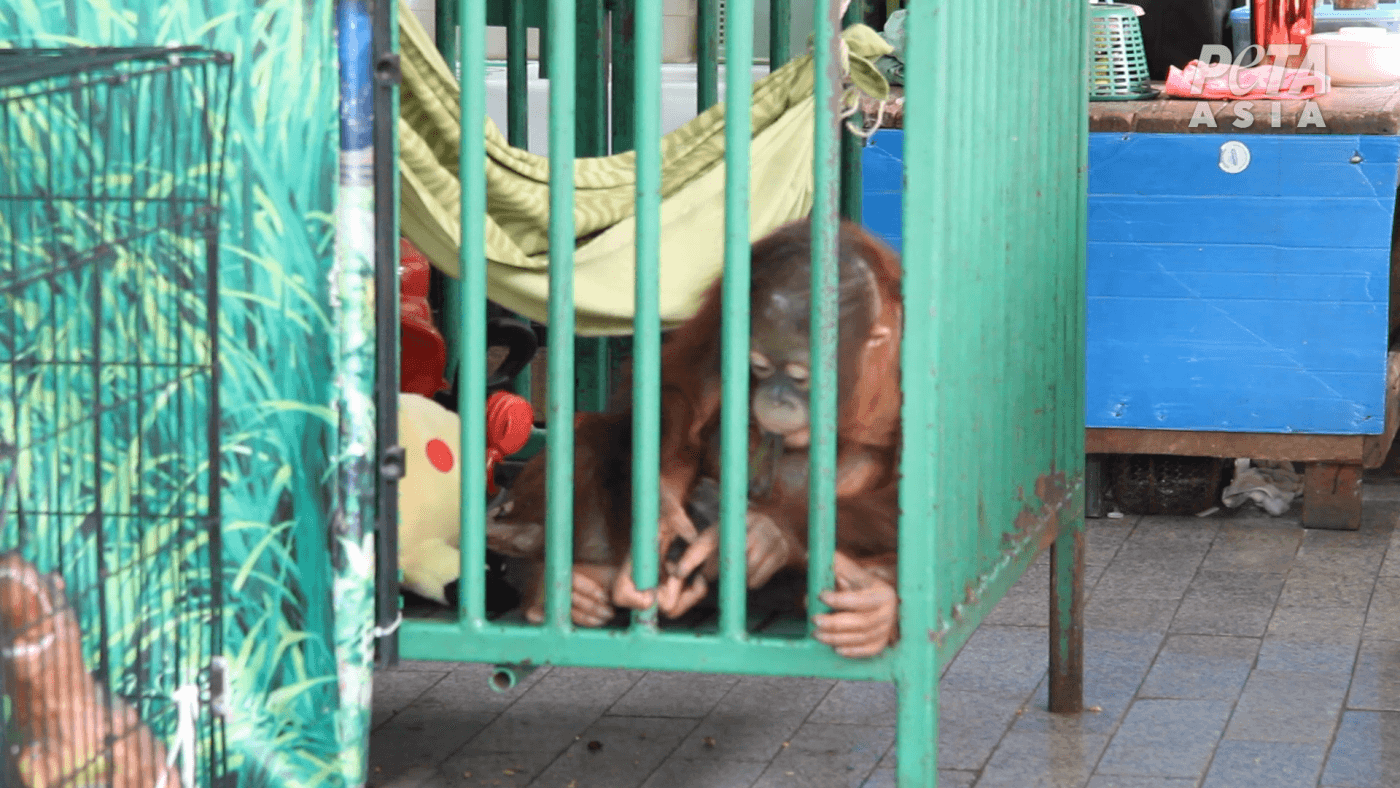
In 2019, a PETA Asia video exposé of Thailand’s Samutprakan Crocodile Farm and Zoo documented handlers jabbing elephants with sharp metal spikes and forcing them to give rides and perform tricks, such as bowling, painting, and dancing. Crocodiles were also violently hit with sticks and forced to perform meaningless tricks, and tigers and primates languished on chains or in barren cages and were used by paying customers as photo props.
In 2020, the zoo forced a masked, leashed chimpanzee to ride around on a bike and spray disinfectant in a spectacle to capitalize on the coronavirus crisis.
Later that year, PETA Asia released more video footage showing the deteriorating conditions at the zoo, including an extremely distressed bear who had worn the paint off a wall in his pen from repeatedly pushing himself against it. Elephants and crocodiles were still being forced to perform pointless stunts for visitors.
Abused and Stabbed for Cheap Tricks
Rather than using bullhooks, the handlers terrorized the elephants by jabbing them with short, sharp pokers to compel them to perform.
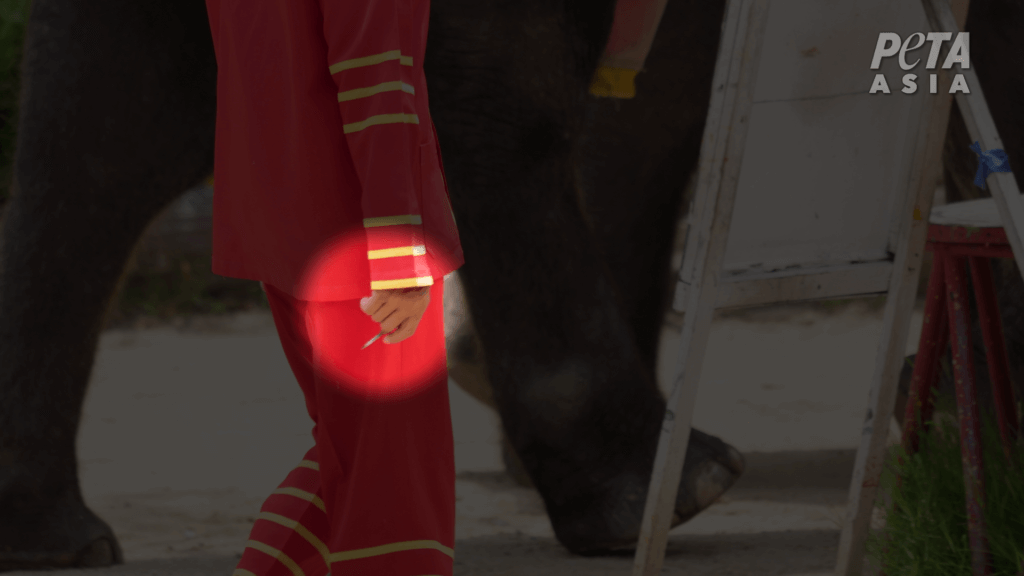
Elephants were found with bleeding wounds on their temples and ears.
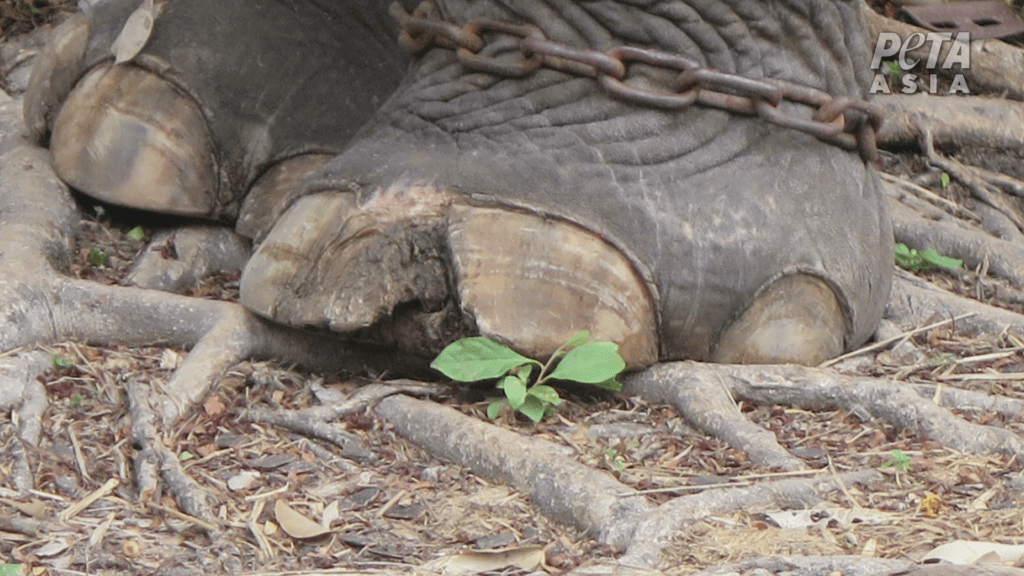
Chained to a Life of Suffering
The elephants were chained on concrete flooring, which often leads to debilitating foot and joint problems. One elephant had a large crack in his toenail. Overgrown, infected, and cracked nails are serious health issues in elephants and indicate poor husbandry.

Elephants are highly social animals who spend their time roaming through forests, swimming, browsing on leaves and bark, and socializing with their families. At this facility, they were chained apart from one another and denied all semblance of a natural life. They constantly swayed from side to side, which is a sign of extreme mental distress.
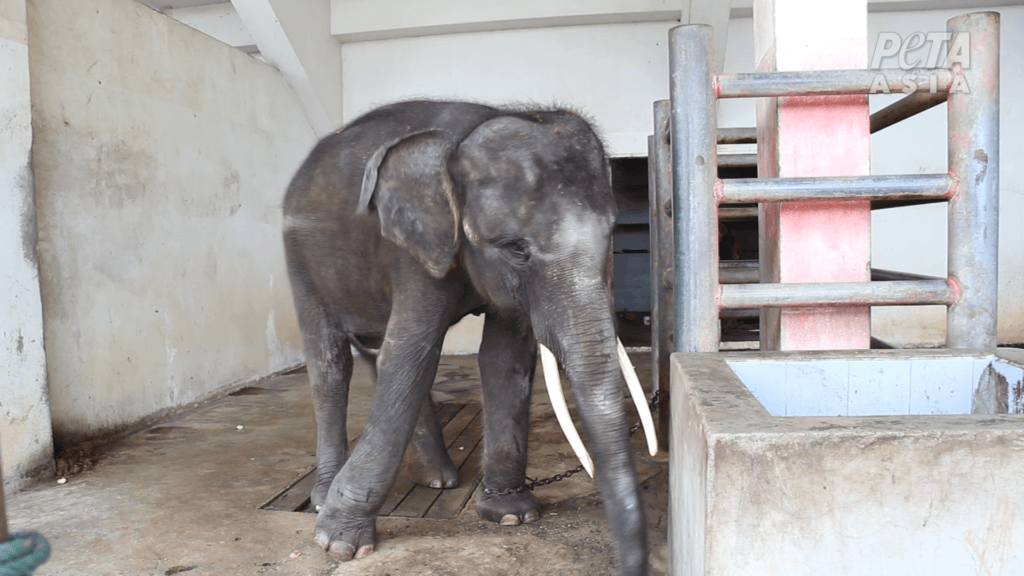
Severe Abuse and Depression
The cruelty at Samutprakan Crocodile Farm and Zoo is deeply entrenched. Even in front of visitors, workers beat crocodiles with bamboo sticks and a wailing tiger was harassed into allowing tourists to pose with him for photos.
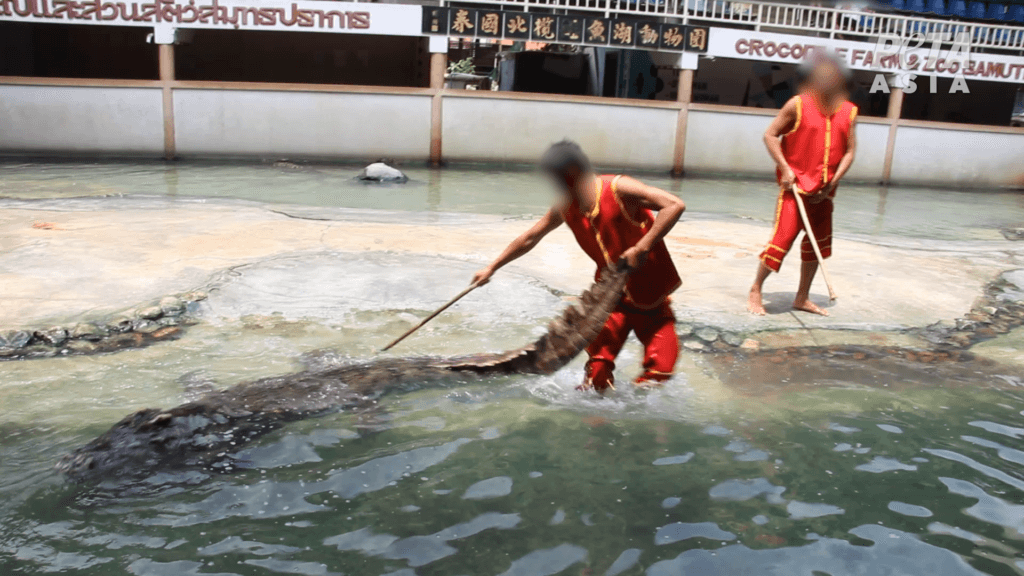
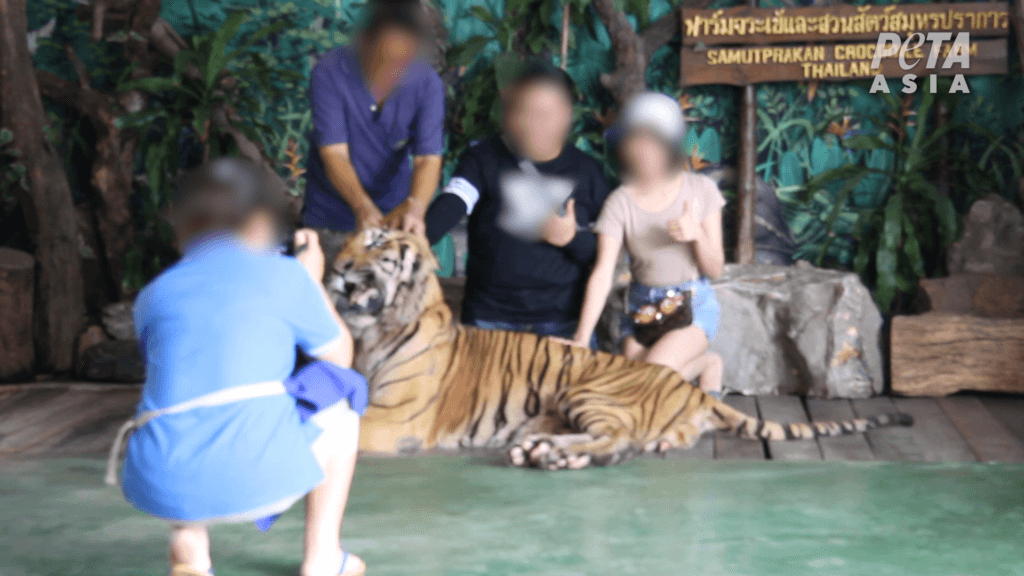
A diapered chimpanzee and an orangutan were chained or caged and used for photo ops. Both of the young primates appeared despondent and listless.
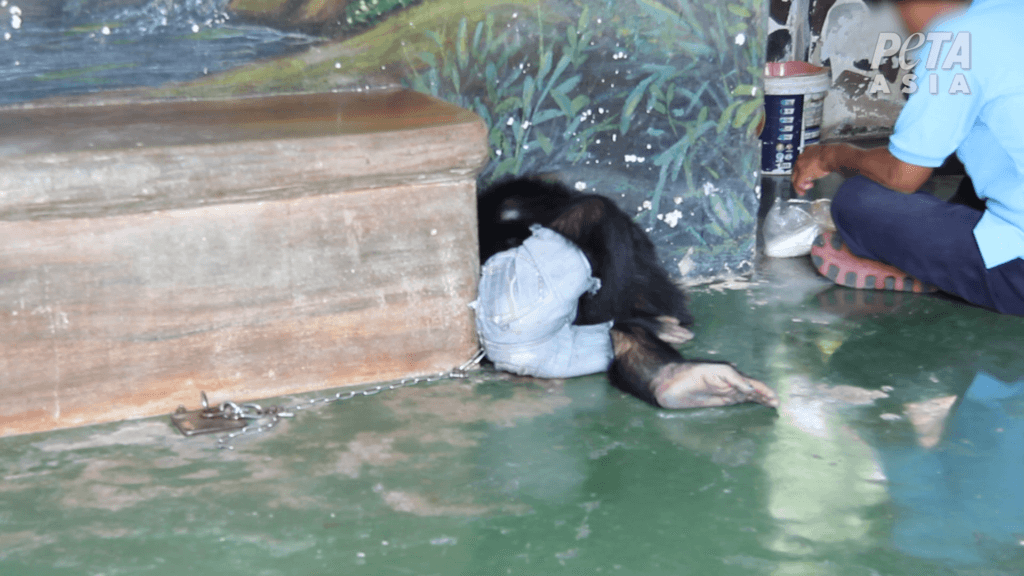
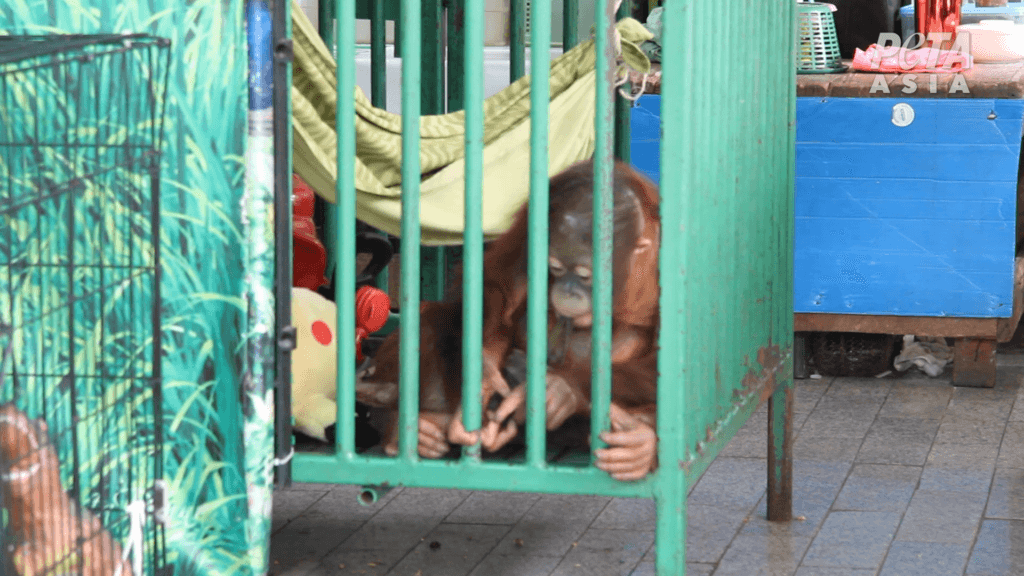
Animals Deserve Better
Elephants form strong, lasting bonds with their family members when given the opportunity. They work together to solve problems and rely on the wisdom, judgment, and experience of their elders. In their natural homes, they spend their days socializing, roaming, swimming, and playing.
In nature, they don’t carry people on their backs or perform uncomfortable and confusing tricks. The deprivation, stress, lack of exercise, and inadequate living conditions that elephants endure in captivity can cause them to develop abnormal behavior—such as rocking and swaying—never seen in the wild. Elephants in captivity have high rates of painful and chronic health problems, such as cracked nails, abscesses, obesity, and arthritis, and they often die far short of their expected life span.
You Can Help Them
PETA Asia submitted its findings to the Thai police. You can help elephants and other animals exploited for tourism by making compassionate travel decisions and never patronizing businesses that exploit wild animals or allow direct contact with the public—including facilities that duplicitously claim to be sanctuaries.
Thanks to thousands of people like you who spoke out, Trip.com and Ctrip made the compassionate decision to stop selling tickets to Samutprakan Crocodile Farm and Zoo. Your actions make a difference!
